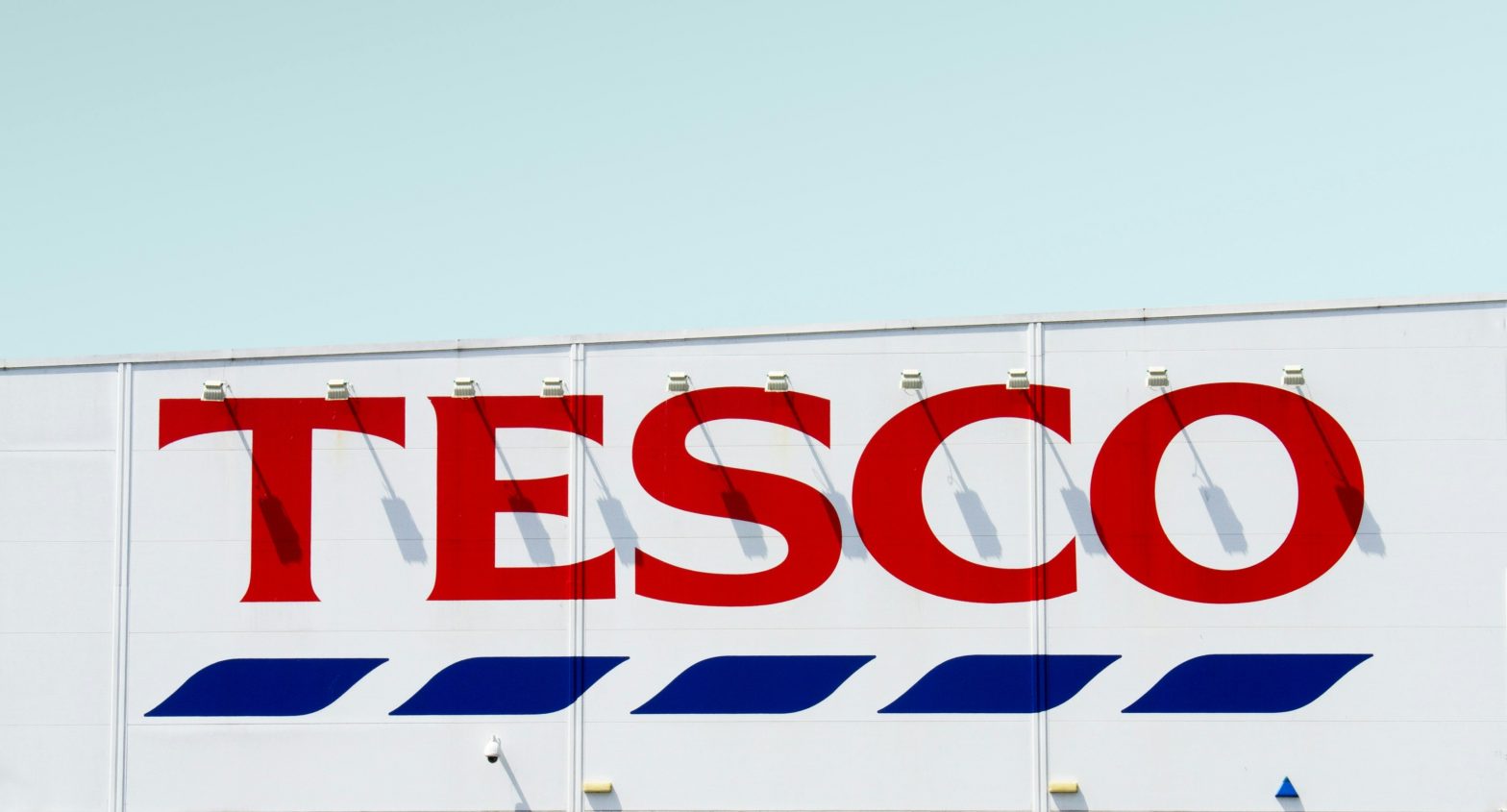Tesco has lost its appeal over a long-running trademark dispute with budget supermarket Lidl. The primary dispute in question concerned its use of a yellow circle against a blue background in its Clubcard logo. The decision in the Lidl v Tesco Court of Appeal case means that Tesco will now be forced into changing its Clubcard logo to one which looks less like Lidl’s main logo.
Anyone who uses Tesco on a regular basis will be well aware of the Tesco Clubcard. Originating in 1995, the Tesco Clubcard had 16 million Clubcard members in the UK as of 2021. Tesco introduced Clubcard prices in 2017, meaning discounted prices for those who use it. The current Clubcard logo featuring a yellow circle on a square blue background was introduced in September 2020. The Tesco Clubcard logo is therefore a ubiquitous presence in the lives of Tesco shoppers. The similarity of Tesco’s Clubcard Logo with the Lidl logo led to Lidl taking legal action against Tesco.
We previously covered the High Court case last year involving Tesco and Lidl in which the High Court found that Tesco had infringed both of Lidl’s trademarks in the use of its Tesco Clubcard logo. You can read more about that case here.
In this case, the High Court found that Tesco had infringed two trademarks, including Lidl’s logo containing the word LIDL (the mark with text), as well as the Lidl logo without the word (the wordless mark). Tesco did, however, succeed when it came to its counterclaim for a declaration that Lidl’s application for a trademark for the mark without text was made in bad faith.
Both sides appealed their respective decisions. Tesco’s appeal focused on their argument that the judge had erred in her findings of trademark and copyright infringement, as well as passing off. They also appealed the grant of an injunction based on their belief that the judge had erred. The case therefore proceeded to the Court of Appeal.
What did the Court of Appeal decide?
The Court of Appeal upheld much of the High Court judge’s decision, deciding that Tesco’s appeal in relation to trademark infringement and passing off was dismissed. The High Court judge had therefore not erred in her findings of infringement. Let’s examine each of the claims in detail, starting with trademark infringement and passing off.
Trademark infringement and passing off
The Court of Appeal were somewhat reluctant to uphold the decision made by the High Court judge when it came to the trademark infringement and passing off decision. However, Tesco’s appeal was dismissed in regard to trademark infringement and passing off. The findings of fact that enough consumers may be misled into believing that Tesco were offering a Lidl price match through the use of the wordless mark (the blue square and yellow circle) was upheld.
The trial judge did not consider whether the CCP signs (Tesco Clubcard symbol) conveyed the price matching messages to herself, instead, she used the evidence of consumers, surveys and internal warnings to come to the conclusion that Tesco’s Clubcard symbol did convey the price matching message.
The court stated that the findings by the High Court judge were “surprising” and that they were “at the outer boundaries of trademark protection and passing off”. Despite the senior judge on the panel stating his implicit disagreement with the decision by expressing his doubt as to whether he would have had come to the same conclusion, the judge outlined that it is not up to the Court of Appeal to “substitute our own evaluation”.
The reason for this is that it is very difficult to overturn findings of fact on appeal. In order to do so, it is necessary for the judge’s finding to be “rationally insupportable”. As the trial judge’s findings could not be faulted in law, this high threshold was not met by the Court of Appeal.
Copyright infringement
When it came to the copyright infringement decision, Tesco’s appeal against the finding by the trial judge was on two grounds. Firstly, that the Lidl logo (“the Mark with Text” ) was original so that the copyright subsisted. Secondly, they also challenged the finding of the trial judge that Tesco’s Clubcard logo (CCP signs) “reproduce a substantial part of the Stage 3 work” – which refers to the current Lidl Logo.
The simplicity of Lidl’s logo meant that their scope of copyright protection was also low. The Court of Appeal disagreed with the High Court’s findings, concluding that Tesco had not infringed the copyright in Lidl’s logo in the creation of its Clubcard logo.
The reason for this was that Tesco had not taken enough of the Lidl logo for it to be considered that a substantial part of it had been taken, as per section 16(3)(a) of the Copyright, Designs and Patents Act 1988. Both the shade of blue and the distance between the circle and the square in the Tesco Clubcard logo (CCP signs) was different from the Lidl logo (“the Mark with Text” ). The Court of Appeal therefore found that the only thing Tesco had copied was the “visual concept of a blue square surrounding (among other material) a yellow circle.
As a result, the conclusion by the Court of Appeal was that Tesco did not infringe the copyright in the Lidl Logo.
Lidl appeal against invalid registration of Wordless Mark
Finally, Lidl’s appeal against the finding that the 1995, 2002, 2005 and 2007 registrations of the wordless mark (Lidl logo with text) were also dismissed. The High Court held that Lidl had failed to provide evidence of its intention to use the trade mark other than to achieve wider protection.
When it came to its appeal of the trial judge’s decision, Lidl failed to identify any serious flaw in the trial judge’s reasoning. As a result, the decision of the trial judge that the wordless trade mark registrations had been filed by Lidl in bad faith was upheld.
Our thoughts
In conclusion, the Court of Appeal’s decision in the Tesco versus Lidl case reaffirms the complexities of trademark infringement, passing off, and copyright disputes. Despite Tesco’s appeals being dismissed, the case highlights the importance of robust evidence in such legal proceedings. Lidl’s success in demonstrating the impact of Tesco’s branding on consumer behaviour underscores the significance of meticulous evidence gathering. This case serves as a precedent, emphasising the evolving landscape of trademark protection and the imperative of vigilant trademark management for businesses.
Our law firm is equipped to assist clients in navigating complex intellectual property matters, offering expert guidance on trademark protection, passing off claims, and copyright infringement. With our tailored legal strategies, we help clients safeguard their rights and mitigate risks in today’s competitive market landscape.
Have questions? Get in touch today!
Call us on 020 7928 0276, phone calls are operating as usual and we will be taking calls from 9:30am to 6:00pm.
Email us on info@lisaslaw.co.uk.
Use the Ask Lisa function on our website. Simply enter your details and leave a message, we will get right back to you: https://lisaslaw.co.uk/ask-question/
For more updates, follow us on our social media platforms! You can find them all on our Linktree right here.






